The week since Robert Abela’s appointment as Malta’s 14th Prime Minister has thrown up various talking points, perhaps the most significant of which being Abela’s first act: a Cabinet reshuffle.
Few started the week expecting the major overhaul that Abela announced, but Wednesday’s announcement showed that Abela had not shown any fear in shuffling his deck of MPs or in putting his trust in the more youthful members of his parliamentary groups, even if it came at the cost of some of the party’s battle-hardened veterans.
The Malta Independent on Sunday delved into the nitty-gritty details of Abela’s new Cabinet, analysing how the new Prime Minister’s decisions have moulded the country’s government.
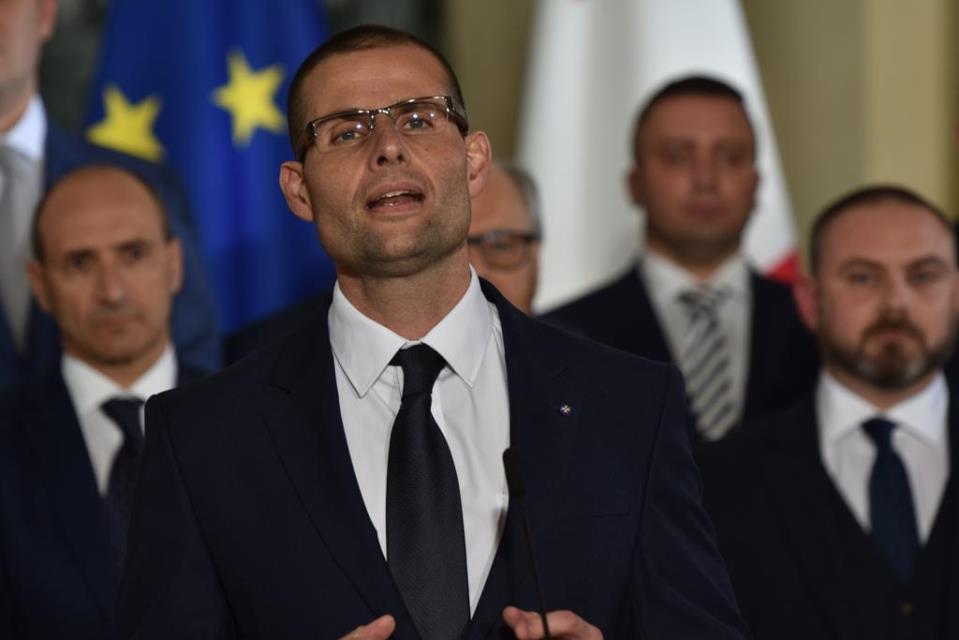
All change in Abela’s first Cabinet
Robert Abela may have promised continuity in his leadership campaign, but his Cabinet reshuffle midway through last week was a huge overhaul which very few perhaps expected.
Only Chris Fearne, Edward Scicluna, Ian Borg, Michael Falzon, Justyne Caruana, and Clifton Grima have retained their original portfolios as Ministers or Parliamentary Secretaries, with Scicluna’s portfolio coming with the added responsibility of the financial services industry and with Borg’s portfolio losing the field of planning, which has shifted to the Environment Ministry.
Roderick Galdes and Clint Camilleri have retained their original responsibilities but are now two of the Cabinet’s 17 ministers.
The rest is all change: Stefan Zrinzo Azzopardi, Rosianne Cutajar, Alex Muscat, Clayton Bartolo, and Byron Camilleri all have Cabinet posts for the first time in their careers while veterans such as Chris Cardona, Joe Mizzi, and Anthony Agius Decelis were omitted.
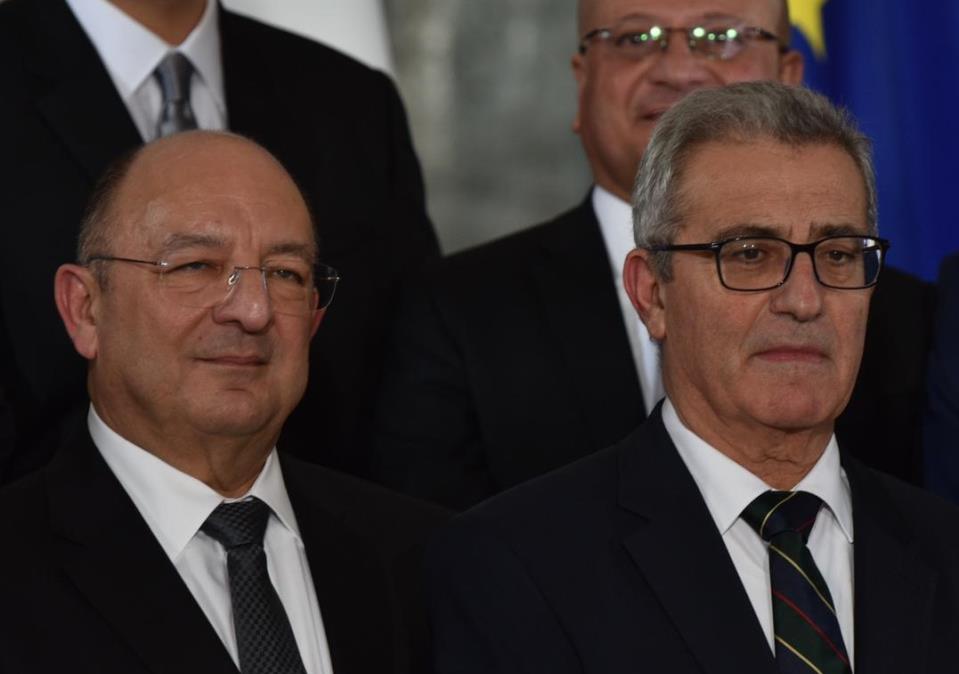
All the remaining incumbents have seen their portfolios shifted around. Evarist Bartolo for instance will, for the first time, take on a portfolio which does not include the education sector, while Owen Bonnici – who is replacing Bartolo – is taking on a portfolio which does not include the justice sector for the first time too.
Michael Farrugia meanwhile is at the other end of the spectrum, having been given his fifth different portfolio in his career. He had previously served as Minister for Health, Care for the Elderly & Family Affairs (1996 to 1998), Parliamentary Secretary for Planning and Administrative Simplification (2013 to 2014), Minister for the Family and Social Solidarity (2014 to 2017), and most recently Minister for Home Affairs and National Security.
Edward Zammit Lewis isn’t that far off either – his role as Minister for Justice, Equality, and Governance is the fourth different portfolio in his seven-year career in Parliament. He served as Parliamentary Secretary for Competitiveness and Economic Growth between 2013 and 2014, then as Minister for Tourism up until 2017. He remained a back-bencher after being re-elected through a casual election in that year’s general election, but in 2019 was given the Equality and EU Affairs ministerial portfolio, replacing Helena Dalli who became EU Commissioner.
Aaron Farrugia, Julia Farrugia Portelli, Clint Camilleri, Roderick Galdes, and Silvio Schembri have all meanwhile been promoted from Parliamentary Secretaries to Ministers, with Schembri and Farrugia in particular now leading two super-ministries.
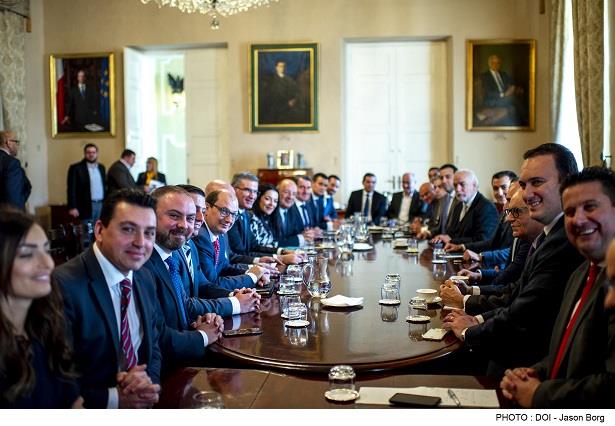
Cabinet will be most expensive in Malta’s history
As already shown by The Malta Independent, Abela’s Cabinet will be the most expensive one in Malta’s history, coming in with a wage bill of some €1.5 million per year.
This is owing to the fact that, at 26 members, the Cabinet is the biggest in terms of ministerial and parliamentary secretarial appointments – two more than Joseph Muscat’s 24-strong Cabinet, and 11 more than Lawrence Gonzi’s 2008 Cabinet which had drawn criticism for being too small.
According to the Cabinet salaries as published by the government late last year, the Prime Minister earns a total of €63,144. This includes a salary of €56,880 (125% of salary scale 1), as well as an additional allowance of €5,823 and a cash allowance of €441.
Ministers earn a salary of €50,055 (110% of salary scale 1), plus an additional allowance of €5,823 and a cash allowance of €380, for a total income of €56,266 while Parliamentary Secretaries have a salary of €47,780 (105% of salary scale 1), an additional allowance of €5,823 and a cash allowance of €370, for a total income of €53,974.
The amount is based on 2019 figures, and the real figure is set to be slightly higher as ministerial salaries have increased by an average of €1,000 a year since 2008.
These figures do not include any cabinet legal advisors, a position that Abela himself held in Muscat’s Cabinet, together with former Deputy PM Louis Grech.
Abela will no doubt be hoping that the added cost will equate to added productivity, and he has noted when asked about this that if productivity and efficiency does increase then it would more than make up for the added cost.
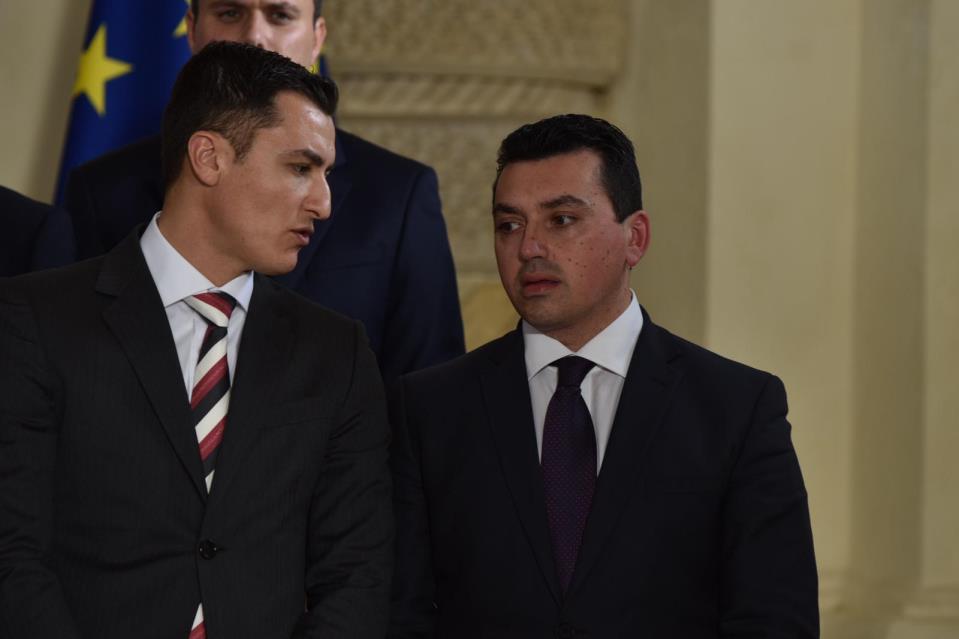
Abela puts his trust in his young MPs
It is a Cabinet that has taken on significant new blood: four Ministers were elected to parliament for the first time in the last general election in 2017, as were four parliamentary secretaries – not to mention, of course, the Prime Minister himself.
Abela was elected to Parliament for the first time in 2017, having been elected in the 6th district on the 14th count. He didn’t have a formal role in Cabinet from there on, but was nonetheless considered to be a part of it as a legal adviser.
New Ministers Aaron Farrugia, Julia Farrugia Portelli, Clint Camilleri (who were promoted from parliamentary secretaries) and Byron Camilleri were all also elected for the first time in 2017.
Stefan Zrinzo Azzopardi, Clayton Bartolo, Rosianne Cutajar, and Alex Muscat were also all elected for the first time in 2017, and all take up Parliamentary Secretary positions for the first time.
The exclusion of Joe Mizzi – who has been in Parliament for a staggering 33 years now since 1987 – meanwhile means that Evarist Bartolo and Michael Farrugia are now the most experienced MPs to hold a Cabinet position. Both were elected for the first time in 1992.
Bartolo is the new Minister for Foreign and European Affairs, having been moved out of the Education and Employment portfolio for the first time, while Farrugia is the new Minister for Energy and Water Management, which his fifth different Cabinet portfolio since he was first elected.
The promotion of so much young blood means that this is one of the youngest Cabinets in history. While Edward Scicluna is the oldest member of the group at 73 years of age, followed by Evarist Bartolo at 67, there are a number of the new Cabinet who are still under the age of 40.
Owen Bonnici at 39, Clifton Grima and Alex Muscat at 36, Silvio Schembri at 34, Ian Borg at 33, Byron Camilleri and Clayton Bartolo at 32, and Rosianne Cutajar at 31 all bring the average age down to below that of the previous Cabinet.
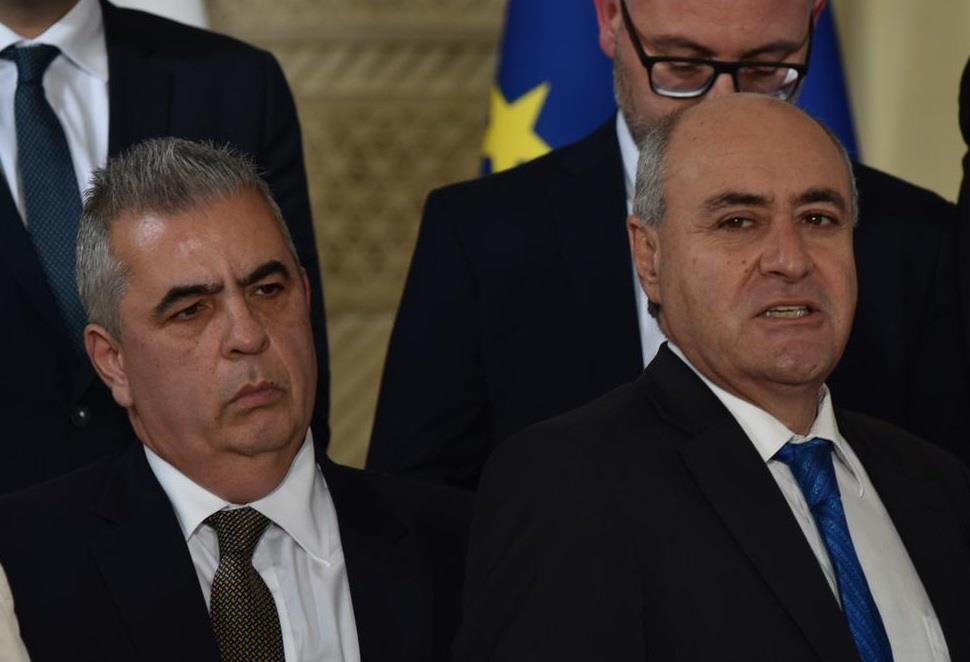
Cabinet predominantly made up of lawyers
Abela’s Cabinet is predominantly made up of people who hailed from the legal profession – something not at all uncommon when considering past Cabinets, especially those of Nationalist governments.
Abela himself is a lawyer, a profession which is shared by Owen Bonnici, Ian Borg, Stefan Zrinzo Azzopardi, Jose Herrera, Justyne Caruana, Michael Falzon, Aaron Farrugia, Byron Camilleri, Clifton Grima, and Clayton Bartolo.
Deputy Prime Miniser Chris Fearne meanwhile is a qualified surgeon, while Michael Farrugia and Deo Debattista are qualified doctors as well.
Edward Scicluna is a highly qualified economist, having held various high-ranking posts at entities such as the MFSA and the Central Bank before his entrance into politics in 2009, while Silvio Schembri and Alex Muscat are also economists. Carmelo Abela meanwhile worked in a similar field, having been a banker.
Julia Farrugia Portelli meanwhile was a journalist, as were Rosianne Cutajar and Evarist Bartolo, with the latter having worked as a teacher for some time as well.
Clint Camilleri meanwhile is an architect and civil engineers, while Roderick Galdes is a researcher.
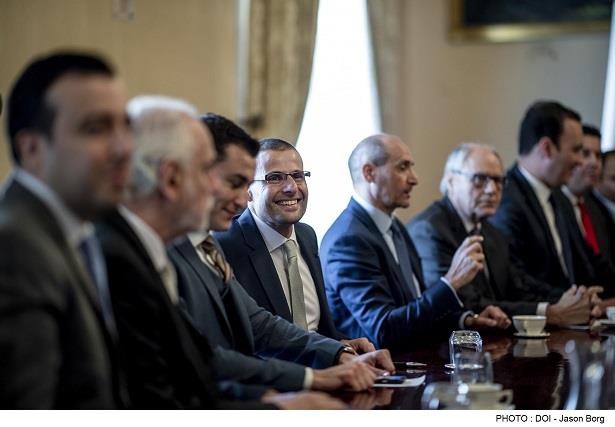
Are local councils creating a new trend in national politics?
An interesting fact to note is the increasing number of Cabinet members who have previous experience within local councils, with this being especially prevalent amongst the newer members of the Cabinet.
In fact, out of 11 members of Cabinet who have served on a local council, only three were elected to Parliament prior to 2013. Those three are Roderick Galdes, who was the mayor of Qormi between 2001 and 2004, Silvio Parnis, who was mayor of Paola between 1994 and 1998, and Carmelo Abela who was a councillor in Zejtun between 1994 and 1996.
Meanwhile, Ian Borg and Silvio Schembri, who were both elected to parliament in 2013, served in the Dingli and Luqa councils respectively.
Rosianne Cutajar’s first forays into politics, much like Galdes, led her to being the mayor of Qormi before being elected to Parliament in 2017, while Clifton Grima, Clint Camilleri, and Byron Camilleri all served as the mayor of Msida, Qala, and Fgura respectively before getting into parliament.
Clayton Bartolo meanwhile was the Deputy Mayor of Mellieha before entering Parliament, while Alex Muscat was the Labour Party’s minority leader in the Mosta local council before his election in 2017.
The fact that the younger members of Cabinet mostly seem to have started their political careers within local councils seems to indicate the start of a trend that could expand in future elections, with new candidates for parliament being ones who have previous experience within the councils of their respective locality.